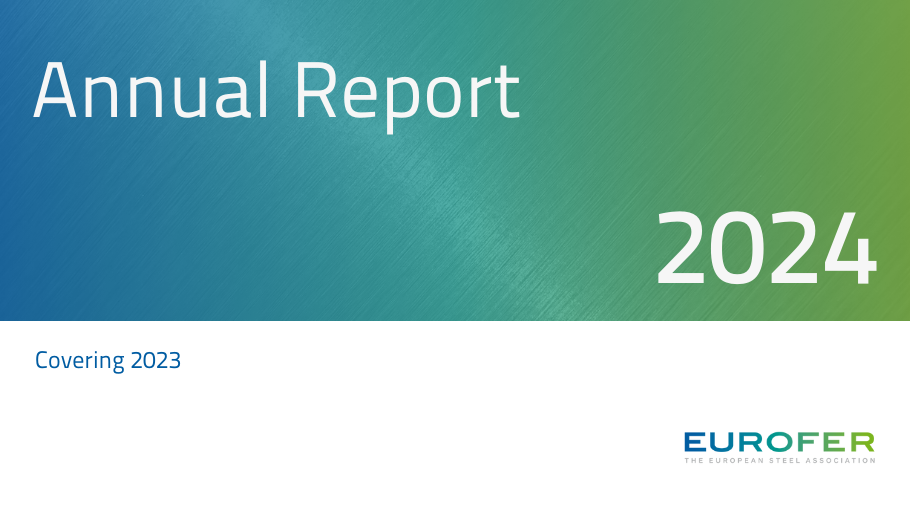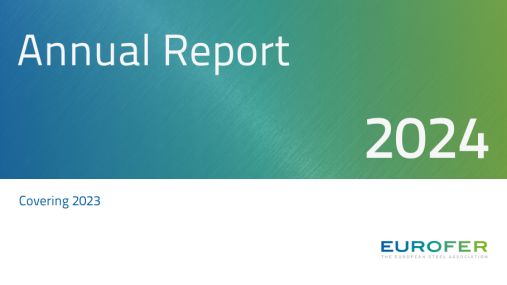

As every year, the publication of the EUROFER Annual Report is an opportunity to recap the policy work conducted by the association throughout 2023, as well as to inspect the forthcoming priority work areas EUROFER will be facing in the next months.They will be crucial to ensure that the future of green steel is and will be made in Europe, which is the essential condition for the EU to achieve global leadership in clean tech and secure its strategic autonomy.
The future of EU industry is at an existential crossroads. Either we are heading towards a resilient Europe with resilient manufacturing, clean tech value chains – from critical raw materials and steel to renewables and electric vehicles, or we are running towards dependence on third country imports.
In the steel sector, we are witnessing both compelling opportunities and unprecedented challenges during the transition to green, circular and clean steel manufacturing. Our members are frontrunners and have already launched numerous groundbreaking emissions reduction projects, unmatched anywhere else in the world, where also steel scrap recycling plays a crucial role.
The EU steel industry’s leadership in decarbonisation was also acknowledged by European Commission President Ursula von der Leyen in her 2023 State of the Union address. She emphasised the imperative that “From wind to steel, from batteries to electric vehicles, our ambition is crystal clear: the future of our clean tech industry has to be made in Europe”.
Its critical role for EU economy and society, including for its green transition, should be more widely recognised at European level. This is also the objective of a pioneering awareness campaign we launched in Brussels this year.
The trajectory of the past year and the months ahead, with a new EU tenure about to start, will lead to a make-or-break it moment for the European industry as a whole, and notably for the steel sector. A fresh EU approach to industrial policy for 2024-2029 is no longer a choice but a necessity if the European Union intends to ‘make it’ and become the global leader in decarbonisation, whilst averting de-industrialisation.
On behalf of the European steel industry, EUROFER has presented its Manifesto 2024-2029, Stronger with European Steel. It highlights the enabling conditions for a successful transition of our industry, which are as follows:
The time for action is now. Europe can only be stronger with EU-made steel.
The full report is available below.

Download this publication or visit associated links
A milestone occasion to quickly and effectively restore affordable electricity, to relaunch the
decarbonization and strengthen the international competitiveness of the European steel
industry.
Brussels, 02 December 2025 – Unchanged negative conditions – U.S. tariffs and trade disruptions, economic and geopolitical tensions, protracted weak demand and still high energy prices – continue to weigh on the European steel market. EUROFER’s latest Economic and Steel Market Outlook confirms for 2025 another recession in both apparent steel consumption (-0.2%, unchanged) and steel-using sectors (-0.5%, revised from -0.7%). A potential recovery is expected only in 2026 for the Steel Weighted Industrial Production index (SWIP) (+1.8%, stable) and for apparent steel consumption (+3%, slightly revised from +3.1%) – although consumption volumes would still remain well below pre-pandemic levels. Steel imports retained historically high shares (27%), while exports plummeted (-9%) in the first eight months of 2025.
Fourth quarter 2025 report. Data up to, and including, second quarter 2025